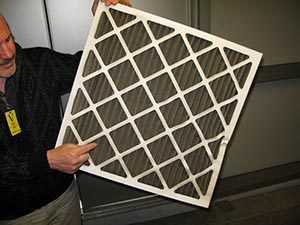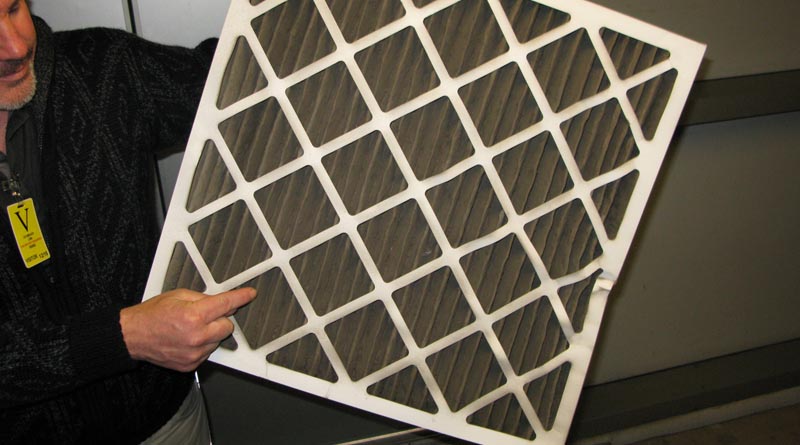6 Lessons About Commissioning for Every Building Owner & Operator
By Brian Walker
There are plenty of good reasons to commission a building. Commissioning improves building energy efficiency and makes it easier for the building engineering staff to manage and maintain the building; and commissioning makes sure that building occupants are comfortable and satisfied.
If a building owner wants to have full confidence that their building is operating as designed and isn’t wasting money inefficient systems, then commissioning is a necessity.
Paladino and Company has managed hundreds of commissioning projects including office, hotel, multifamily, schools and retail; and I have come across a range of issues that weren’t in any trainings or textbooks. I can’t distill everything that we’ve learned, but I can share these six common lessons and some smart ideas to mitigate typical challenges.

Architects Need to Keep the Maintenance Team in Mind
Developers and architects often design maximum usable space for occupants, sometimes tucking mechanical systems into hard-to-reach places. We have seen mechanical units placed above 12-foot-high ceilings with another 8 feet of space between the ceiling and the units. Even simple tasks like changing a filter take longer and are harder to do when the mechanical systems are hard to get to. And when maintenance is difficult, it is less likely that it gets done. Make sure that mechanical units are easily accessed so that they are easier to maintain.
Enhanced Commissioning Prevents Design Headaches
The Certified Commissioning Authority (CxA) can use past experiences in the field to identify potential issues in the design. Understanding how things will be installed, controlled and maintained are critical aspects to the commissioning design review. Developers should consider the benefits of enhanced commissioning for their projects. Paladino commissions projects with both fundamental and enhanced commissioning. Possibly the best benefit of enhanced commissioning is the commissioning authority’s design reviews. When a project that only had fundamental commissioning reaches the construction and closeout phases, there are often issues that could have been avoided had we had the chance to review the design and provide feedback to the engineering design consultants.
Look Beyond Occupant Comfort
With mechanical systems commissioning, contractors often make sure that each system meets its basic purpose, which is to provide conditioned air to the space. But what about the systems that don’t directly affect occupant comfort? What about ventilation systems that are not working properly? Or something causing a system to waste energy, like improperly set schedules or a malfunctioning damper? Or alarms that aren’t set up or a broken leak detector? These issues may not be detected by the end user, and will unquestionably impact cost and performance.
Invest in Monitoring Capabilities
All HVAC monitoring systems are not created equal. A well-designed monitoring system that immediately alerts maintenance staff when there is an issue can often mean that problems can be resolved before equipment is damaged or occupants are impacted. If your building isn’t actively monitored, you might be wasting money right now.
Let the Design Engineer & CxA Resolve Issues with Controls
Complicated projects can have tricky control systems. The issues usually result from controls contractors designing systems around their own opinions or interpretations. A comprehensive review of the controls submittal’s sequences of operation, schematics and wiring diagrams by the design engineer and Commissioning Authority — and coordination between all parties — will settle issues and form a mutual understanding about how the systems will operate.
Commissioning Doesn’t Create Problems — It Finds Them
Commissioning unearths problems. Knowledge is power, as they say, and not commissioning a building lets them to persist and get worse, often undetected by building occupants. And building systems issues tend to pile up, creating a bigger and potentially more costly problem. If your building is using more energy than necessary, has insufficient indoor air quality or potential safety hazards, you need to know about it sooner rather than later. Property owners should retro-commission their un-commissioned buildings, and do it ASAP. CapEx budgeting season is the perfect time to get bids from commissioning vendors.
Energy analysis, commissioning and measurement verification are critical components of a successful green building. Commissioning and retro-commissioning ensure that a building and its systems are constructed, installed and operated to meet the performance of the owner and any third-party rater such as LEED. Never wait to learn how your facilities are performing, and work with experienced commissioning experts to get the most out of your investment.
Brian Walker, EIT, LEED AP BD+C, is a consultant at Paladino and Company.

